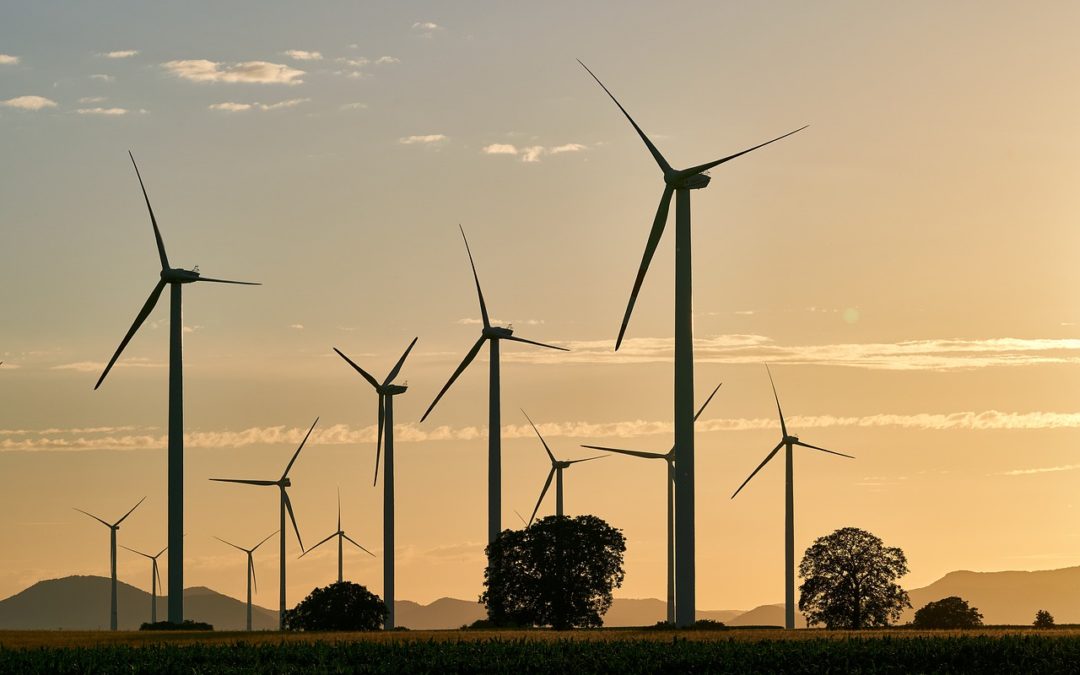On Wednesday, January 26, 2022, LOCOMOTION hosted its first LOCOMINAR of the year in an effort to help society make informed decisions about the transition to a more sustainable future. This interactive event fostered dialogue among scientists, policymakers, civil society, and the private sector on key issues relating to rising material needs and the challenges associated with attempting to achieve low-carbon and sustainable targets. With more than 100 people participating in the event, there is a very clear message: People are increasingly recognizing the importance of material requirements in achieving a green transition, and we must act.
Here are the main takeaways from the event:
“Raw materials are a critical enabler of the transition to a carbon-neutral economy. However, it also implies that the just transition is highly resource intensive and relies on critical raw materials, the demand for which is expected to rise globally, but most notably in Europe,” said Katharina Wiese, Policy Officer for Economic Transition at the European Environmental Bureau (EEB), when opening the event. Katharina also mentioned the need to make the green transition environmentally and socially just. “The biggest challenge will be to manage transition in a way that does not deepen social inequalities.”
A medium and long-term assessment that considers both material and social aspects is required to make the green transition environmentally and socially just. “We require medium and long-term planning for the green transition, as well as a global assessment perspective that takes materials into account. It’s not just what is financially possible, but also what is materially possible, as well as aspects of social equity,” Marguerite Culot, Economic Transition Assistant at the EEB, pointed out when presenting the results of LOCOMOTION related to material requirement. LOCOMOTION’s model will assess a wide range of issues, including the European Green Deal, the transition to climate neutrality by 2050, as well as the effects of pandemics and much more.
Diego Marin, Associate Policy Officer for Environmental Justice at the EEB, shares this sentiment about the need for an economic transition that considers both material and social aspects. “We must reduce our material consumption, which, along with energy reductions, will, of course, bring us back to planetary boundaries, but with social equity at the forefront,” Diego says, presenting a newly published report on the topic of resource consumption, published by the EEB and Friends of the Earth Europe. There must be a circular economy policy with “material reduction targets, not just monetary targets.”
Best practices and initiatives promoting material sustainability are also presented at the event. “The requirements for raw materials are a very complex topic. It is not enough to simply discuss a specific material demand and a specific commodity. It’s critical that all stakeholders work together,” said Dr Patrick Nadoll, Senior Advisor on Exploration and Resource Assessment at EIT RawMaterials. With this in mind, EIT RawMaterials coordinates the European Raw Materials Alliance initiative. This initiative aims to address the circular economy by increasing the recovery and recycling of critical raw materials in collaboration with all relevant stakeholders, including industrial actors, trade unions, civil society, research and technology organizations, investors, and NGOs.
Another initiative is the Battery Passport. The initiative is created by the Global Battery Alliance with the goal of ensuring that battery production, which requires a large amount of materials, not only supports green energy but also protects human rights and promotes health and environmental sustainability. “The Battery Passport is a digital representation of a battery that conveys information about all applicable ESG and lifecycle requirements, based on a comprehensive definition of a sustainable battery. Each Battery Passport will be a digital twin of its physical battery, powered by the digital Battery Passport platform, which will provide a global solution for securely sharing information and data,” explains Dr Torsten Freund, Global Battery Alliance’s PMO Lead – Battery Passport. “We believe that the Battery Passport will be a critical tool for reporting on sustainability across the entire value chain, and we believe that this understanding will drive change and nudge all participants toward sustainable behavior,” Dr. Torsten added.
LOCOMINAR provided an opportunity for experts from various stakeholder groups to learn and share knowledge, as well as to connect across sectors. The polling session at the start of the event provided a solid foundation for this interaction. During the discussion session at the end of the event, participants and speakers discussed the current policy context and how it may evolve in the coming months, as well as best practices, and recommendations.
Although the COVID-19 pandemic prevented us from meeting in person, we discovered that the community’s energy and drive can push physical limits while still engaging in a virtual space.
Speakers
- Dr Torsten Freund, Global Battery Alliance (Download Dr Torsten’s slides)
- Dr Patrick Nadoll, EIT RawMaterials (Download Dr Patrick’s slides)
- Diego Marin, EEB (Download Diego’s slides)
- Marguerite Culot, EEB (Download Marguerite’s slides)
Watch the video re-play
The video of the event is available to watch here.

